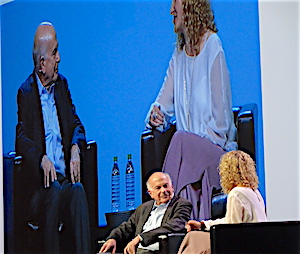
‘Show Me the Income’
The focus was on mutual funds and ETFs at Morningstar's 30th Investor Conference this week in Chicago, but retirement financing and the 'best interest' proposal were also discussed. (Photo: Nobel Prize-winner Daniel Kahneman and Morningstar's Sarah Newcomb talk behavioral finance.)




